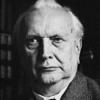Karl Jaspers

Karl Jaspers
Karl Theodor Jasperswas a German-Swiss psychiatrist and philosopher who had a strong influence on modern theology, psychiatry, and philosophy. After being trained in and practicing psychiatry, Jaspers turned to philosophical inquiry and attempted to discover an innovative philosophical system. He was often viewed as a major exponent of existentialism in Germany, though he did not accept this label...
NationalityGerman
ProfessionPsychologist
Date of Birth23 February 1883
CountryGermany
The soul of a landscape, the spirits of the elements, the genius of every place will be revealed to a loving view of nature.
Nietzsche's ideas and plans: for example, the idea of giving up the whole wretched academic world to form a secular monastic community.
To decide to become a philosopher seemed as foolish to me as to decide to become a poet.
The great philosophers and the great works are standards for the selection of what is essential. Everything that we do in studying the history of philosophy ultimately serves their better understanding.
My own being can be judged by the depths I reach in making these historical origins my own.
When in our isolation we see our lives seeping away as a mere succession of moments, tossed meaninglessly about by accidents and overwhelming events; when we contemplate a history that seems to be at an end, leaving only chaos behind it, then we are impelled to raise ourselves above history.
Nietzsche, driven by the absolute demand of his existential truthfulness, could not abide the bourgeois world, even when its representative had human nobility.
It has become obligatory to fulfil a function which shall in some way be regarded as useful to the masses...Even an articulated mass always tends to become unspiritual and inhuman. It is life without existence, superstition without faith. It may stamp all flat; it is disinclined to tolerate independence and greatness, but prone to constrain people to become as automatic as ants.
Conflicts may be the sources of defeat, lost life and a limitation of our potentiality but they may also lead to greater depth of living and the birth of more far-reaching unities, which flourish in the tensions that engender them.
There is no God, cry the masses more and more vociferously; and with the loss of God man loses his sense of values — is, as it were, massacred because he feels himself of no account.
At the present moment, the security of coherent philosophy, which existed from Parmenides to Hegel, is lost.
I discovered that the study of past philosophers is of little use unless our own reality enters into it. Our reality alone allows the thinker's questions to become comprehensible.
Philosophy as practice does not mean its restriction to utility or applicability, that is, to what serves morality or produces serenity of soul.
Reason is like an open secret that can become known to anyone at any time; it is the quiet space into which everyone can enter through his own thought